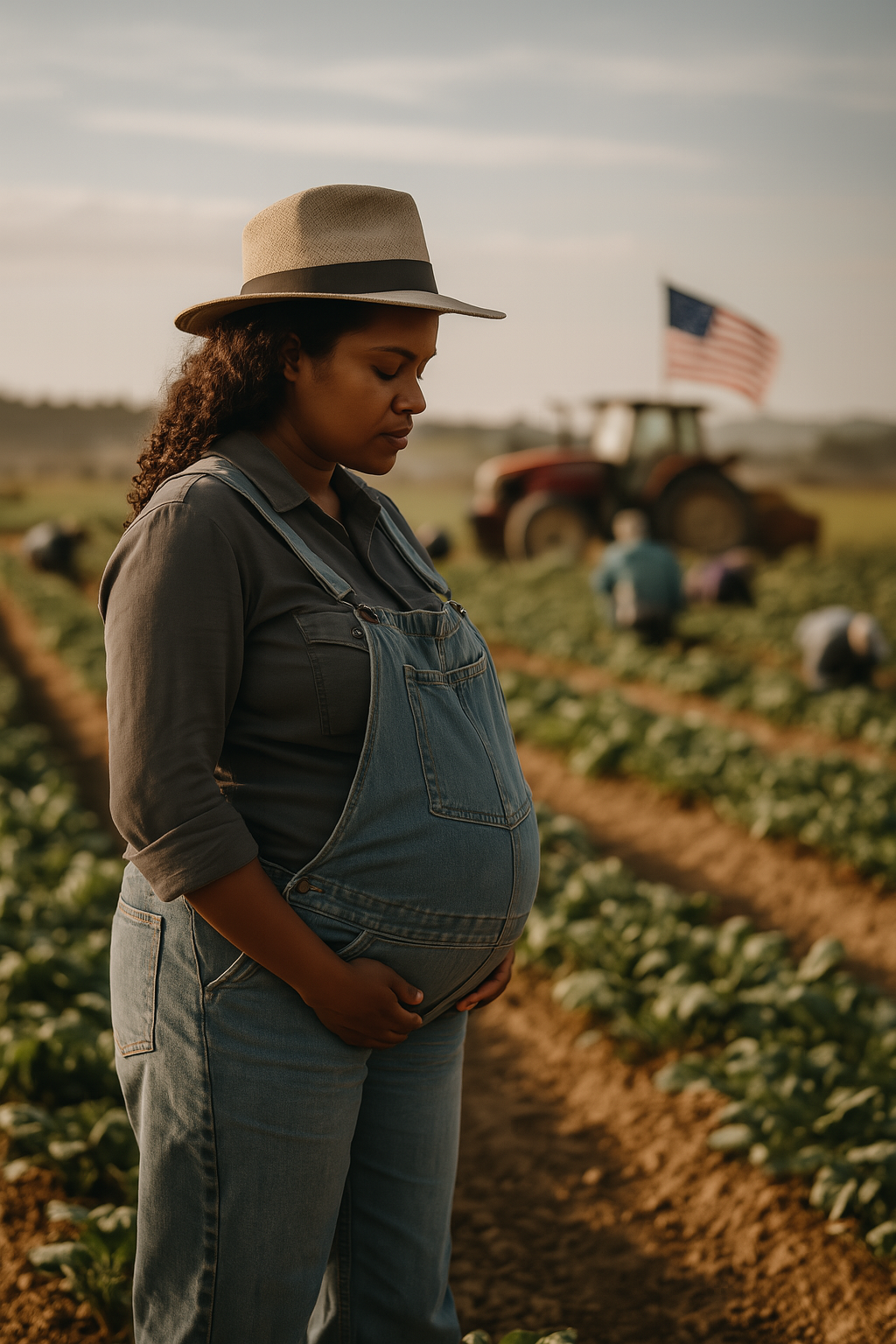Birthright Citizenship Makes Washington Strong

One Birth, Two Futures
In a quiet delivery room in Spokane, a baby enters the world. Same nurses, same hospital, same breath drawn into life, as all other babies born here. But under a new federal order, that baby’s right to be American now depends not on where they were born but on the legal status of their parents.
The Constitution’s promise, “born here, you belong,” has long been a bedrock of American identity. But that principle is now under assault, and the battleground includes not just Texas or Arizona, but Washington State. The future of thousands of newborns here, and across the country, hangs in the balance.
And what is at stake is not just their future, but ours. The health of our state, both economically and socially, depends on keeping this promise. These children are part of Washington’s future workforce, tax base, and civic life. We need them.
What Birthright Citizenship Really Means
Birthright citizenship, established by the 14th Amendment, guarantees that anyone born on U.S. soil is a citizen. It was written after the Civil War to ensure newly freed slaves could never be denied their rights. It has endured every political cycle since, weathering nativist backlash and legal challenge alike.
Executive Order 14160, signed by President Trump in January 2025, aims to reverse this guarantee. It directs federal agencies to deny automatic citizenship to children born in the U.S. unless their parents are already citizens or lawful permanent residents.
The stakes are not abstract. Without birthright citizenship, the children born today in Spokane, Yakima, and Pasco could grow up stateless. unable to fully participate in our society, our economy, or our democracy. These are not just children without paperwork. They are children who may never be able to pay into Medicare or Social Security, or one day staff our clinics, build our infrastructure, or teach our children. Weakening their status weakens the future of our state.
The Numbers: Who Gets Hurt in Washington
Washington State sees about 80,000 births each year. Roughly 7,000 to 8,000 of those are to parents who are not citizens or green card holders. That means thousands of children every year, especially in agricultural counties like Yakima, Grant, Adams, and Franklin, stand to lose their most basic right: the right to belong to the country of their birth.
In places like Othello, Toppenish, and parts of Spokane Valley, one out of every four children could be placed in legal limbo. These are not theoretical numbers. They represent real families, real newborns, and real economic consequences for all of us.
The Moral and Ethical Stakes
Stripping citizenship from a newborn is not a policy. it is a rupture in the promise of equality under the law. It creates a two-tiered system where children are divided not by what they have done, but by who their parents are.
Statelessness does not just create legal confusion. it creates trauma. Without federal recognition, children can be denied Social Security numbers, passports, public benefits, and access to vital services. They cannot vote, cannot fully work, and cannot leave the country without risking being locked out of it forever.
And the weight of that uncertainty falls squarely on their backs before they can even crawl, and it weighs them down for life.
The Economic Consequences for Washington
The economic toll of dismantling birthright citizenship is profound. Children with citizenship grow into workers, taxpayers, voters, and caretakers of the next generation. Study after study shows that citizens, regardless of origin, have better health, higher incomes, and greater civic participation than noncitizens.
If Washington allows thousands of its children to fall into legal gray zones, the state loses future teachers, farmers, nurses, and entrepreneurs. We also face rising administrative costs: verifying citizenship status at birth, handling legal disputes over documentation, and preparing for inevitable litigation.
Economically, it is like cutting the roots and wondering why the harvest never comes.
Local Silence, National Harm
While Washington’s Democratic leaders have challenged the order in court, most of the state’s Republican congressional delegation has either supported the policy or remained silent. Rep. Michael Baumgartner, who represents Eastern Washington, has not made any public statement opposing the executive order or defending birthright citizenship. Neither has Rep. Dan Newhouse, the only other remaining Republican in Washington’s House delegation.
The silence is telling. It suggests that in their view, defending a newborn’s right to legal belonging is not worth the political risk. The principle of equal protection, once a bipartisan cornerstone, is no longer universally held.
If the government is allowed to deny legal status to children born on U.S. soil, and elected officials will not challenge that, then what protection is still secure?
What Happens if the Court Sides with Trump
Washington is part of a multistate lawsuit challenging Trump’s executive order. A federal judge in Seattle issued a nationwide injunction blocking its implementation. But that protection may not last.
In June 2025, the U.S. Supreme Court issued a decision in Trump v. CASA limiting the power of federal courts to issue nationwide injunctions. Under this new precedent, district courts can only block policies narrowly, applying the remedy only to those who brought the case unless broader relief is absolutely necessary.
The Ninth Circuit Court of Appeals, which has jurisdiction over federal cases in Washington, is now reviewing the challenge. If the court adopts the Supreme Court’s standard, the nationwide block could be invalidated or narrowed. The executive order could take effect in states not directly represented in the lawsuit, or even within Washington if the court determines that the plaintiffs' standing does not justify broader protections.
That would mean Washington families could face legal uncertainty at the hospital, at the clerk’s office, or at the border; their newborns considered Americans one day, but not the next.
The Choice Facing Washington
Birthright citizenship is not just a legal principle. It is a promise of inclusion and stability. It tells every child born here: this country is yours. That promise is now being tested, and Washington must decide whether it will stand behind it.
If we believe that our future workforce, economy, and communities depend on welcoming the children born in our hospitals, then we must treat the erosion of their status as an urgent problem. We cannot afford to ignore it.
The Defense We Still Have to Mount
Washington must be prepared for the ruling ahead and for the dismantling of federal protections that may follow.
The state must continue pressing its legal case and prepare to file a class-action suit on behalf of all potentially affected children in Washington. A class-action approach could meet the Supreme Court’s new requirement for broader relief and help shield thousands of newborns from immediate harm.
In parallel, the state Legislature can act now to minimize damage. Washington should:
- Guarantee access to birth certificates regardless of parental status
- Create state-recognized identification for children denied federal documents
- Ban state agency cooperation with federal enforcement of the order
- Fund legal defense efforts to assist families at risk of statelessness
Finally, there is a public responsibility. Democratic leaders, local officials, and civil society groups must speak clearly: weakening birthright citizenship weakens the nation itself. The children being targeted today are tomorrow’s nurses, electricians, caregivers, and small business owners. Their future is Washington’s future.
We define who we are as a society by how we protect our children.
The promise of birthright citizenship: simple, universal, and just. has served us for more than 150 years. If Washington intends to remain a state where equality under the law means something, then the fight for that promise must continue.
